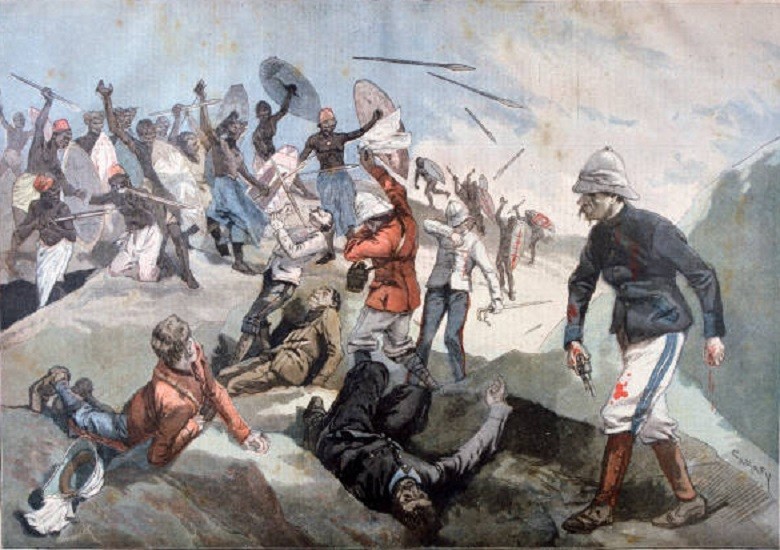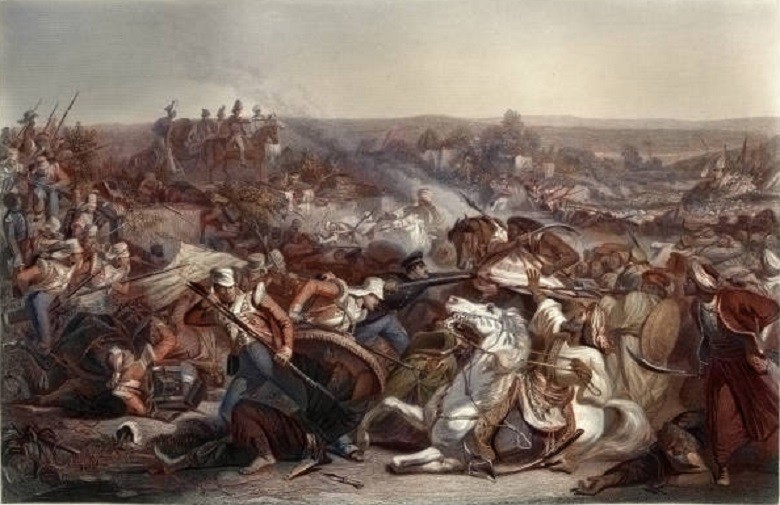
views
The Rise and Fall of the British Empire: From Superpower to Decline
In the midst of the 19th century, the world looked to Britain as the dominant superpower—its reach extending from the shores of the British Isles to the farthest corners of the Earth. The British Empire controlled vast swathes of land across Asia, Africa, the Americas, and the Pacific, with a sense of invincibility and unmatched power. But by the middle of the 20th century, Britain found itself struggling to maintain its imperial dominance. Wars, shifting global power structures, and an emboldened desire for independence from colonial subjects turned the empire from the mightiest on Earth to a shell of its former self.

This narrative is one of excitement, suspense, and tragedy—the story of a nation that once ruled a quarter of the globe, only to see its grandeur crumble. It is a story of revolutionary change, economic shifts, and the transformation of global geopolitics, all of which led to the collapse of the British Empire and its slow and painful decline into modernity.
The Rise of the British Empire
The roots of the British Empire can be traced back to the Age of Discovery in the late 15th and early 16th centuries. In 1497, John Cabot, sailing under the English flag, reached the coast of North America, and this would mark the beginning of England’s expansion across the seas. Yet it wasn’t until the 17th century that England—soon to be known as Britain—began its true imperial adventure. Colonization, trade, and military might would build an empire whose power was unequaled.
By the early 18th century, Great Britain had firmly established itself as one of the leading maritime powers. The Royal Navy, strengthened by years of innovation and investment, protected British trade routes and colonies while pushing out rivals such as France and Spain. The result was the vast territorial expanse that we recognize as the British Empire. The empire was driven by a powerful blend of economic interests, military strategy, and the insatiable desire to acquire resources from all over the world.
The Industrial Revolution (late 18th to early 19th century) fueled Britain’s imperial ambitions by providing the economic resources, technologies, and military superiority necessary to dominate vast areas. The rise of factories, the steam engine, and railways ensured Britain maintained its supremacy. The British East India Company established British rule in India, one of the most important and profitable colonies of the empire. By the time of Queen Victoria’s reign in the mid-19th century, the empire reached its apex, covering nearly a quarter of the world's land and controlling an even larger portion of its population.
The Height of British Power: The “Sun Never Sets”
In the 19th century, Britain was at the zenith of its power. The phrase "the sun never sets on the British Empire" was coined to reflect its global expanse, where the empire spanned continents, oceans, and time zones. Britain’s military strength and naval supremacy allowed it to secure its hold over vital regions, including India, Africa, and the Caribbean. The British Raj in India was one of the crown jewels of the empire, with Britain extracting vast wealth from the subcontinent’s resources.
Britain also dominated the Atlantic Slave Trade for centuries, amassing untold riches through the exploitation of enslaved people. The slave-based sugar, tobacco, and cotton industries in the Caribbean and the southern United States contributed to Britain’s wealth and power, though the full extent of the moral and human toll was not fully acknowledged until much later.
The Victorian era also saw the British Empire thrive as a cultural, economic, and technological force. London became the world’s financial capital, with its Stock Exchange and Bank of England central to the global economy. British cultural imperialism, spreading the English language and British institutions worldwide, reinforced the idea of Britain as a civilizing force in the world. British science, literature, and exploration flourished during this period, further cementing the belief that the empire was a beacon of progress in the world.
However, beneath the veneer of this grandeur, simmering discontent began to grow. The empire was built upon the oppression and exploitation of its colonies, and the seeds of rebellion were already being sown by nationalist movements seeking independence.
The Cracks Appear: The Impact of World War I
The First World War (1914–1918) marked a turning point in the history of the British Empire. The war placed enormous pressure on Britain’s economy and military, and although the empire emerged victorious, the cost of the conflict would prove to be too much. Millions of men died in the trenches of Europe, and many colonial troops, particularly from India and Africa, had their expectations of equality shattered when they returned to their home countries, fueling nationalist movements that had begun to rise in the 19th century.
By the end of the war, Britain’s financial stability had been severely compromised. The Treaty of Versailles (1919), which formally ended the war, also laid the groundwork for the empire’s future unraveling. The war’s aftermath saw the creation of new powers, particularly Germany and the United States, which began to challenge Britain’s dominance in international affairs. Additionally, the Russian Revolution of 1917 created an alternative vision of governance that would influence former colonies around the world.
At home, Britain was facing a more fractured society. Labour movements, inspired by the Russian Revolution and the success of socialist ideals, began to push for greater rights and wages for workers, undermining the capitalist system that underpinned the empire’s prosperity. The General Strike of 1926 saw millions of British workers protest, challenging the ruling class and showing the rising tension between the labor class and the elite.
The Decline Begins: World War II and the End of Empire
While the cracks in the empire had been appearing for some time, the real collapse began with World War II. The war (1939-1945) was a devastating blow to the British Empire. Britain’s military was stretched thin, its cities bombed, and its economy in tatters. This time, however, the loss of empire would be more pronounced.
The Battle of Britain and the broader conflict revealed the empire’s vulnerabilities. Despite its victory over Nazi Germany, Britain was financially drained. The United States, emerging from the war as the dominant global superpower, sought to reshape the world order, pushing Britain out of its imperial position.
The war also accelerated the independence movements in Britain’s colonies. In India, Mahatma Gandhi had led a non-violent resistance movement for decades, and by 1947, India gained its independence, marking a symbolic end to the British Empire’s dominance in the subcontinent. Britain’s other colonies soon followed suit, as nationalistic movements grew stronger in places like Kenya, Egypt, and Palestine.
As Britain’s empire shrank, it struggled to adapt. The Suez Crisis of 1956, in which Britain attempted to take military action to seize control of the Suez Canal after Egypt nationalized it, was a humiliating moment. The United States and the Soviet Union forced Britain to back down, marking the end of Britain’s role as a superpower in the global arena. The crisis underscored the limitations of the British Empire and highlighted the emerging Cold War dynamics that would dominate global politics for the next several decades.
The Fall of Empire and the Modern World
By the 1960s and 1970s, most of Britain’s former colonies had gained independence. The British Empire was gone, replaced by a Commonwealth—a collection of former colonies now sovereign states, many of which retained a symbolic relationship with the British Crown through the British monarchy. The winds of decolonization swept through Africa, the Caribbean, and Asia, leaving Britain a much smaller player on the world stage.

Britain’s retreat from empire was not without its challenges. The Windrush Generation in the post-war period brought immigrants from former colonies to the UK to help rebuild the nation’s economy, resulting in a new wave of multiculturalism. However, the empire’s legacy of racial tension and economic exploitation continued to affect these relationships. The decline of Britain’s empire also led to a reevaluation of its role in global politics, where it struggled to define its identity outside of imperialism.
Despite the loss of its empire, the United Kingdom remained a significant global actor, particularly as a member of the United Nations, NATO, and later the European Union. However, the echoes of empire are still felt today, with the global influence of the British language, culture, and financial systems.
Conclusion: The Legacy of Empire
The rise and fall of the British Empire is one of the most dramatic narratives in modern history. From its towering apex of wealth, military power, and cultural influence, it slipped into a long and often painful decline, driven by war, economic crises, and the rise of nationalist movements across the globe. Its legacy is both a source of pride and a painful reminder of exploitation, imperialism, and inequality.
Today, the empire’s story serves as a powerful lens through which we can examine the forces of power, colonialism, and global politics. As the world continues to change, the lessons of the British Empire remain as pertinent as ever, reminding us of the complexity and fragility of power, and how even the mightiest empires can fall.




















Comments
0 comment